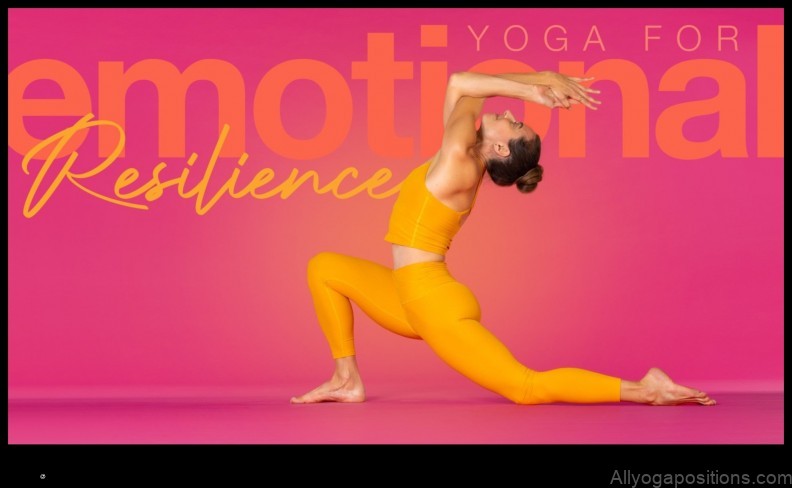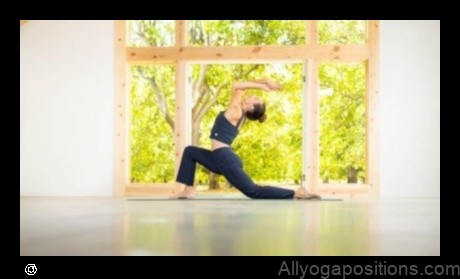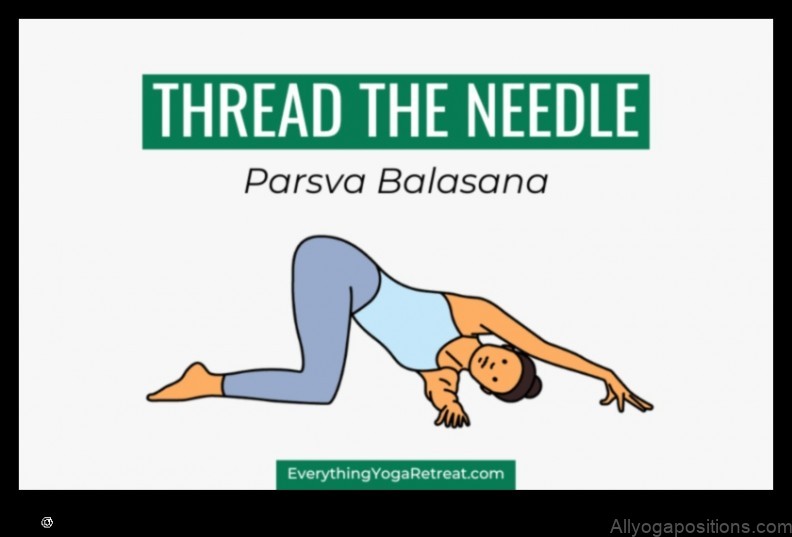
Yoga for Emotional Resilience: Acceptance and Letting Go
Acceptance and letting go are two important skills for emotional resilience. When we can accept ourselves and our experiences, and let go of things that we cannot control, we are better able to cope with stress and difficult emotions. Yoga can help us to develop these skills by teaching us how to relax our bodies and minds, and how to connect with our inner selves.
In this blog post, we will explore the connection between yoga and emotional resilience. We will discuss the benefits of yoga for emotional health, and we will provide tips for practicing yoga for emotional resilience.
We will also discuss the importance of acceptance and letting go, and we will offer some practices that can help you to cultivate these skills.
If you are interested in learning more about how yoga can help you to build emotional resilience, please read on.

What is emotional resilience?
Emotional resilience is the ability to cope with stress and difficult emotions in a healthy way. People who are emotionally resilient are able to bounce back from setbacks, and they are able to maintain a positive outlook on life.
Emotional resilience is important for everyone, but it is especially important for people who are struggling with mental health issues, such as anxiety, depression, or stress. Yoga can be a helpful tool for developing emotional resilience, as it can teach us how to relax our bodies and minds, and how to connect with our inner selves.
Why is emotional resilience important?
Emotional resilience is important for a number of reasons. First, it can help us to cope with stress and difficult emotions in a healthy way. When we are able to manage our emotions, we are less likely to experience negative consequences, such as anxiety, depression, or substance abuse.
Second, emotional resilience can help us to maintain a positive outlook on life. When we are able to bounce back from setbacks, we are more likely to believe in ourselves and our ability to achieve our goals.
Finally, emotional resilience can help us to build strong relationships. When we are able to manage our emotions, we are more likely to be able to communicate effectively with others and to build healthy relationships.

How can yoga help you build emotional resilience?
Yoga can help you to build emotional resilience in a number of ways. First, yoga can help you to relax your body and mind. When we are relaxed, we are less likely to react to stress in a negative way.
Second, yoga can help you to connect with your inner self. When we are connected with our inner selves, we are more likely to be able to understand our emotions and to cope with them in a healthy way.
Third, yoga can help you to develop a sense of self-acceptance. When we accept ourselves for who we are, we are less likely to be affected by negative criticism or judgments.
Finally, yoga can help you to develop a sense of gratitude. When we are grateful for the things we have, we are less likely to focus on the things we do not have.
The benefits of yoga for emotional resilience
Yoga has been shown to have a number of benefits for emotional resilience, including:
- Reduced stress and anxiety
- Improved mood
- Increased self-awareness
- Enhanced self-acceptance
- Improved relationships
If you are interested in learning more about the benefits of yoga for emotional resilience, please read our blog post on the topic.
Types of yoga for emotional resilience
There are many different types of yoga that can be helpful for emotional resilience. Some of the most popular types of yoga for emotional resilience include:
- Hatha yoga
- Vinyasa yoga
- Yin yoga
- Yoga nidra
The best type of yoga for emotional resilience will vary depending on your individual needs and preferences. If you are not sure which type of yoga is right for you, it is a good idea to talk to your doctor or a yoga instructor.
How to practice yoga for emotional resilience
Yoga is a practice that takes time and dedication to learn. However, there are a few
| Acceptance | Letting Go | Emotional Resilience | Yoga Features |
|---|---|---|---|
| The ability to accept yourself and others, even with your imperfections. | The ability to let go of things that you cannot control or change. | The ability to cope with stress and difficult emotions in a healthy way. | Yoga can help you to develop acceptance and letting go through its focus on mindfulness, breathwork, and movement. |
II. What is emotional resilience?
Emotional resilience is the ability to cope with stress and adversity in a healthy way. It involves managing your emotions, accepting yourself and others, and finding meaning in difficult experiences.
Emotionally resilient people are able to bounce back from setbacks and challenges, and they are able to maintain a positive outlook on life. They are also able to connect with others and build strong relationships.
Emotional resilience is an important skill for everyone, but it is particularly important for people who are facing challenges such as anxiety, depression, or stress.
II. What is emotional resilience?
Emotional resilience is the ability to cope with stress and adversity in a healthy way. It involves the ability to bounce back from setbacks, maintain a positive outlook, and stay focused on your goals.
Emotionally resilient people are able to manage their emotions effectively, tolerate stress, and stay calm under pressure. They are also able to connect with others and build strong relationships.
Emotional resilience is an important skill for everyone, but it is especially important for people who are facing challenges such as anxiety, depression, or stress.
IV. How can yoga help you build emotional resilience?
Yoga can help you build emotional resilience in a number of ways.
First, yoga can help you to manage stress and anxiety.
Yoga teaches you how to relax your body and mind, and it can help you to let go of negative emotions.
Yoga can also help you to develop a sense of self-awareness and self-compassion.
When you practice yoga, you learn to pay attention to your body and mind, and you learn to accept yourself for who you are.
Yoga can also help you to connect with your inner strength and resilience.
When you practice yoga, you learn to challenge yourself and to overcome obstacles.
Yoga can help you to develop a positive outlook on life and to see challenges as opportunities for growth.
Overall, yoga can help you to build emotional resilience by helping you to manage stress and anxiety, develop a sense of self-awareness and self-compassion, and connect with your inner strength and resilience.
V. The benefits of yoga for emotional resilience
Yoga has been shown to have a number of benefits for emotional resilience, including:
- Reduced stress and anxiety
- Improved mood
- Increased self-awareness
- Enhanced mindfulness
- Improved sleep
- Increased physical and mental health
These benefits can help people to cope with stress, manage their emotions more effectively, and build a stronger sense of self.
6. Conclusion
In this blog post, we have discussed the importance of emotional resilience and how yoga can help you build it. We have also provided information on the benefits of yoga for emotional health, specific yoga poses that can help with emotional resilience, and tips for using yoga to cope with emotional challenges.
If you are struggling with emotional challenges, yoga can be a helpful tool for managing your emotions and building emotional resilience. By practicing yoga regularly, you can learn to accept yourself and your emotions, let go of negative thoughts and feelings, and cope with stress in a healthy way.
If you are interested in learning more about yoga for emotional resilience, there are many resources available online and in your local community. You can find classes at your local yoga studio, or you can learn yoga at home with the help of books, DVDs, or online tutorials.
Yoga is a powerful tool for emotional healing. By practicing yoga regularly, you can learn to live a more balanced and fulfilling life.
VII. How to practice yoga for emotional resilience
Yoga is a mind-body practice that can help you build emotional resilience in a number of ways.
First, yoga can help you to relax and reduce stress. When you are stressed, your body releases cortisol, a hormone that can lead to anxiety and depression. Yoga can help to lower cortisol levels and promote relaxation.
Second, yoga can help you to improve your self-awareness. When you practice yoga, you pay attention to your body and your breath. This can help you to become more aware of your thoughts and emotions, and to learn how to manage them more effectively.
Third, yoga can help you to build strength and flexibility. When you practice yoga, you challenge your body in a safe and controlled way. This can help you to build strength and flexibility, which can give you a greater sense of confidence and control.
Fourth, yoga can help you to connect with your inner self. When you practice yoga, you focus on your breath and your body. This can help you to quiet your mind and connect with your inner self. This can lead to a greater sense of peace and well-being.
If you are interested in using yoga to improve your emotional resilience, there are a few things you can do.
First, find a yoga class that is appropriate for your fitness level and interests. There are many different types of yoga, so you should be able to find one that you enjoy.
Second, practice yoga regularly. The more you practice, the more benefits you will experience. Aim to practice yoga at least twice a week, but more is better.
Third, listen to your body and modify your practice as needed. If you are feeling pain or discomfort, stop and adjust your pose. You should never push yourself beyond your limits.
Fourth, be patient. It takes time to build emotional resilience. Don’t expect to see results overnight. Just keep practicing and you will eventually see the benefits.
Tips for staying motivated with yoga
Here are a few tips for staying motivated with yoga:
- Set realistic goals.
- Find a supportive community.
- Make yoga a part of your daily routine.
- Practice yoga for fun.
- Be patient with yourself.
FAQ
What is emotional resilience?
Emotional resilience is the ability to cope with stress and adversity in a healthy way. It involves being able to tolerate difficult emotions, bounce back from setbacks, and maintain a positive outlook on life.
Why is emotional resilience important?
Emotional resilience is important for a number of reasons. It can help you to:
- Cope with stress and adversity
- Bounce back from setbacks
- Maintain a positive outlook on life
- Build healthy relationships
- Be more successful in school and work
How can yoga help you build emotional resilience?
Yoga can help you build emotional resilience in a number of ways. It can:
- Help you to relax and reduce stress
- Improve your mood and self-esteem
- Teach you how to manage your emotions
- Help you to connect with your body and mind
What are the benefits of yoga for emotional resilience?
The benefits of yoga for emotional resilience include:
- Reduced stress and anxiety
- Improved mood and self-esteem
- Increased mindfulness and self-awareness
- Improved ability to manage emotions
- Enhanced connection with the body and mind
What are the types of yoga for emotional resilience?
There are many different types of yoga that can help you build emotional resilience. Some of the most popular types include:
- Hatha yoga
- Vinyasa yoga
- Yin yoga
- Restorative yoga
- Breathwork yoga
How to practice yoga for emotional resilience?
There are a few things you can do to practice yoga for emotional resilience. These include:
- Find a yoga class or teacher that you like and trust.
- Practice yoga regularly, even if it’s just for a few minutes each day.
- Listen to your body and mind and adjust your practice as needed.
- Be patient and persistent. It takes time to build emotional resilience.
Tips for staying motivated with yoga
Here are a few tips for staying motivated with yoga:
- Set realistic goals for yourself.
- Find a yoga class or teacher that you enjoy.
- Make yoga a part of your daily routine.
- Reward yourself for your progress.
Conclusion
Yoga can be a powerful tool for building emotional resilience. By practicing yoga regularly, you can learn to relax and reduce stress, improve your mood and self-esteem, manage your emotions, and connect with your body and mind. This can help you to cope with stress and adversity in a healthy way and live a more fulfilling life.
FAQ
Q: What is emotional resilience?
A: Emotional resilience is the ability to cope with stress and adversity in a healthy way. It involves managing your emotions, staying positive, and having a strong sense of self-worth.
Q: Why is emotional resilience important?
A: Emotional resilience is important because it helps you to deal with the challenges of life in a healthy way. It can help you to avoid negative emotions, such as anxiety and depression, and it can help you to cope with stress and adversity in a positive way.
Q: How can yoga help you build emotional resilience?
A: Yoga can help you to build emotional resilience in a number of ways. It can help you to manage your emotions, stay positive, and have a strong sense of self-worth.
Table of Contents
